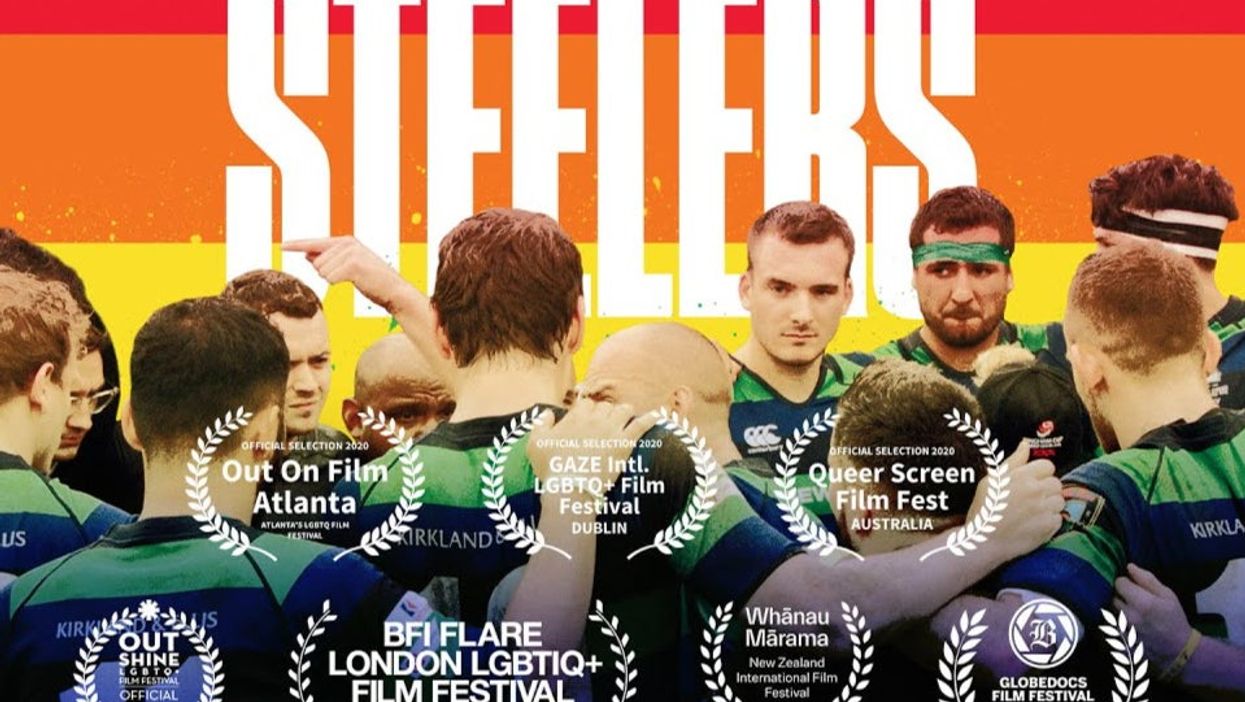Mention rugby and most of us will think of a mud-flecked pageant of primal masculinity.
It’s all tree trunk thighs thundering down rain-soaked pitches and shoulder-bashing scrums followed by roars of triumph or rage.
But, for some of us, it’s much more than that: it’s community; it’s a sense of purpose; it’s the difference between life and death.
Steelers, available on Amazon Prime Video from April 16, tells the story of the world’s first gay rugby team.
And yet, it’s so much more than a 75-minute documentary about an individual sport’s team. It is, in the words of its creator, “a story about searching for where you belong and never giving up – because you might just find happiness where you least expect it.”
Here at Indy100 we’ve spoken to three key figures from the movie and the club to illustrate why this is a film for everyone, no matter what your background or sexuality – and even if you don’t like rugby.
The film’s synopsis
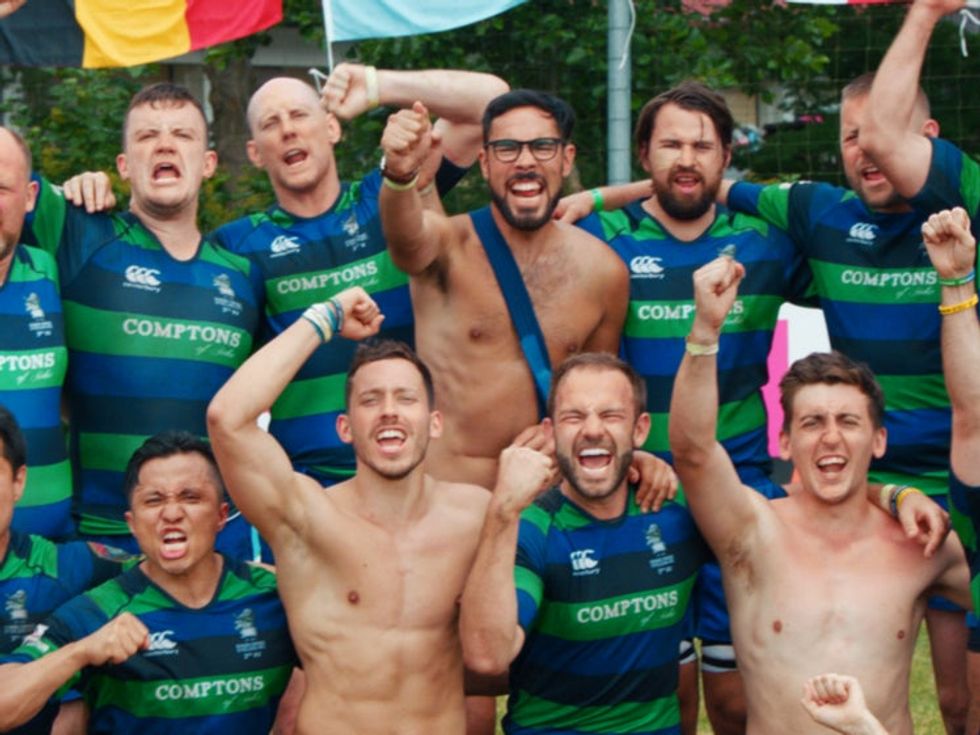
The world’s first gay rugby team was founded in a north London pub 25 years ago.
Its masterminds, a group of six friends, wanted to create an inclusive community where gay and bisexual men could play the sport they loved and prove that they were equal to any mainstream team. And so the Kings Cross Steelers were born.
Fast-forward to 2018, Australian journalist and the film’s director Eammon Ashton-Atkinson accompanies the Steelers to Amsterdam as the team vye for victory at the international gay rugby tournament the Bingham cup.
Recording the team’s ups and downs in their journey to become champions, Eamonn interviews some of the people who make the Steelers what they are, all while teaching the audience a thing or two about resilience, friendship, and self-belief.
How did the documentary come about?
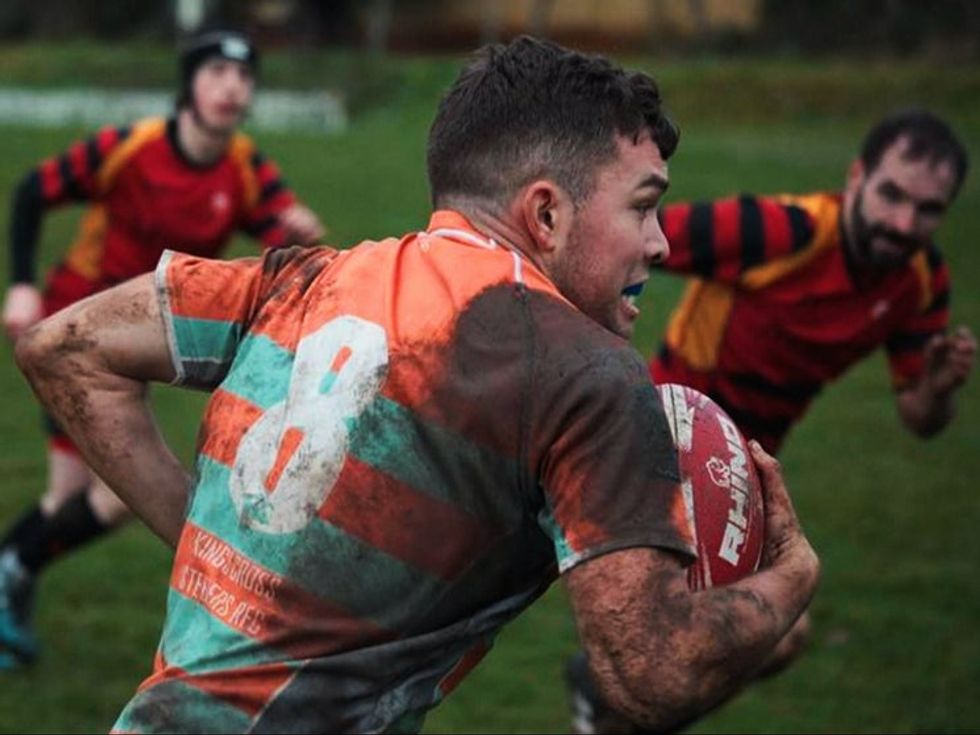
Eammon should have been playing in the Bingham cup tournament himself. Having moved to London to work as a news correspondent he soon became a proud member of the Steelers’ squad.
But when a concussion ruled him out of the contest the TV reporter decided to pick up his camera and record his teammates’ journey instead.
He didn’t have any grand plans to create a film at the outset. “I just thought maybe I’ll get enough footage and I’ll put together a little 20-minute thing on YouTube,” he told Indy100.
But it was when he started speaking to the players and the three people who were to become his core cast members that he began to realise there was a deeper narrative to be shared.
Still, once the tournament ended (and we won’t reveal any spoilers, don’t worry), he put his camera away in a drawer for a year, leaving the footage untouched.
It was only when, in January 2020, the international rugby star Israel Folau said “hell awaits” gay people that Eammon realised it was time to tell the Steelers’ story.
Who are the central characters and how were they chosen?
Just as Eamonn didn’t have a plotline planned, he also didn’t have his three protagonists lined up when he first started filming.
It was only through having impromptu conversations with each of them that he realised they embodied the movie’s central themes: struggles with mental health, identity acceptance, and fighting misogyny.
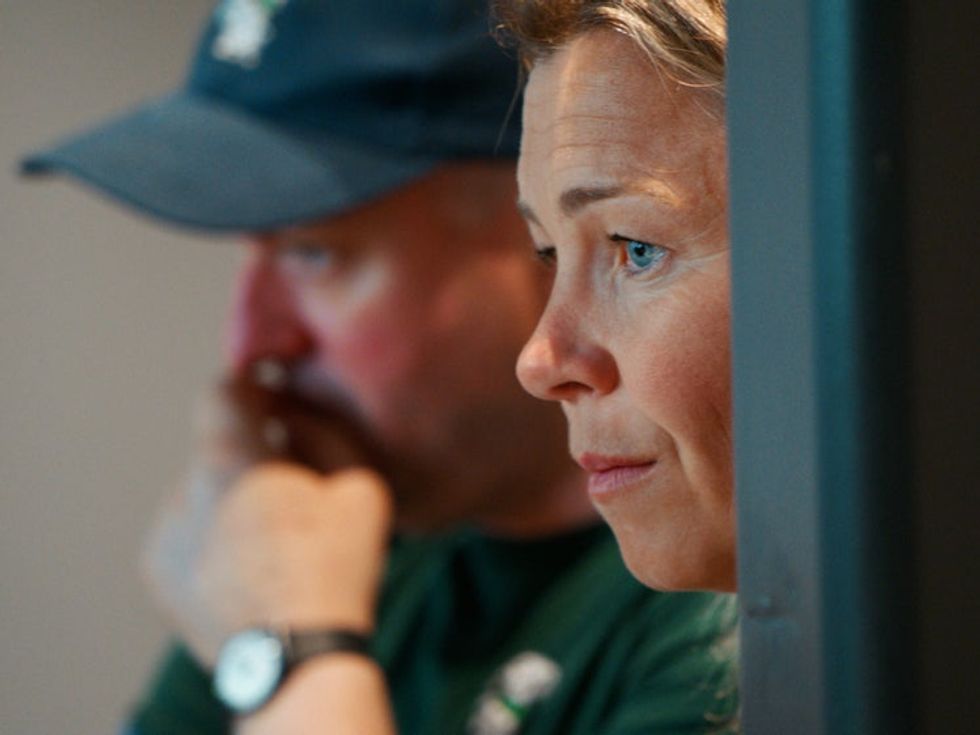
Nic Evans was the head coach of the Kings Cross Steelers from 2014 to 2018, meaning this Bingham Cup tournament was to be her last with the team. Focusing on a woman in a film ostensibly about a male rugby team may seem counterintuitive, but Eamonn explained that her passion for the sport and candid portrayal of her battles against misogyny placed her at “the heart of the film”. That is, after all, something women, trans people and members of the LGBTQ+ community face on a daily basis.
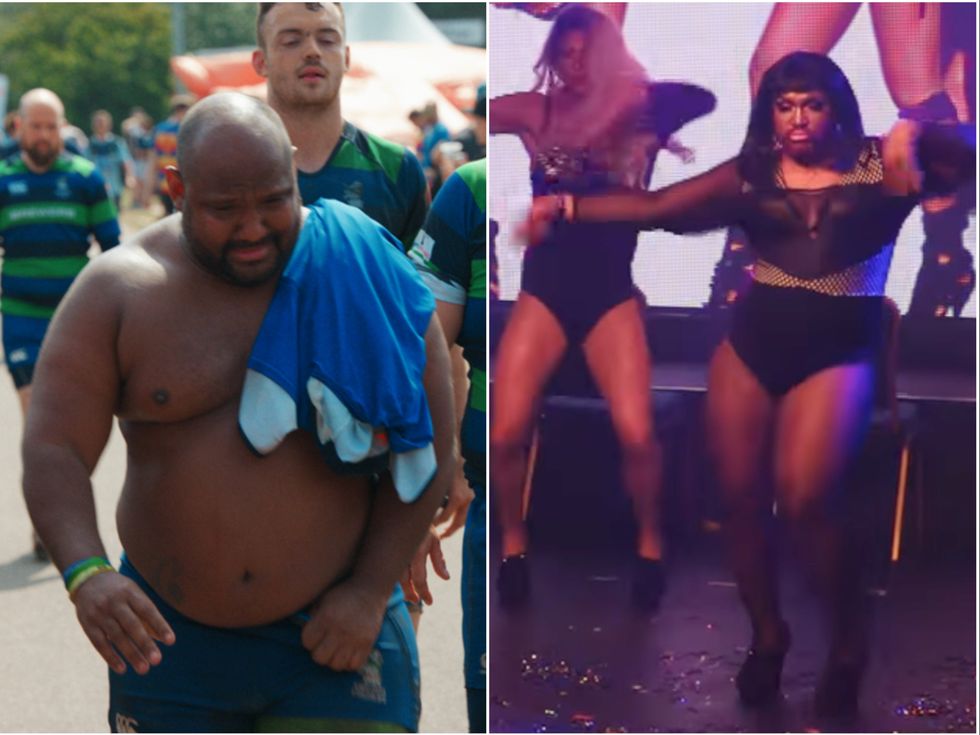
Drew McDowell moved to London from the US when he was 25. His love of drag off the pitch – transforming into “Drewalicious” by night – and fierce power on the pitch is a perfect illustration of the pressures of masculinity and conflicts of dual identities endured by so many queer men. At one point in the documentary Drew explains: “There’s this element of being a rugby player – even as a gay rugby player – that there’s a certain masculinity that you need to maintain. To me that’s bollocks. I will be tough and brutal and kick your ass on the pitch, when I’m off the pitch I will be as flagrant and as flamboyant as I want.”
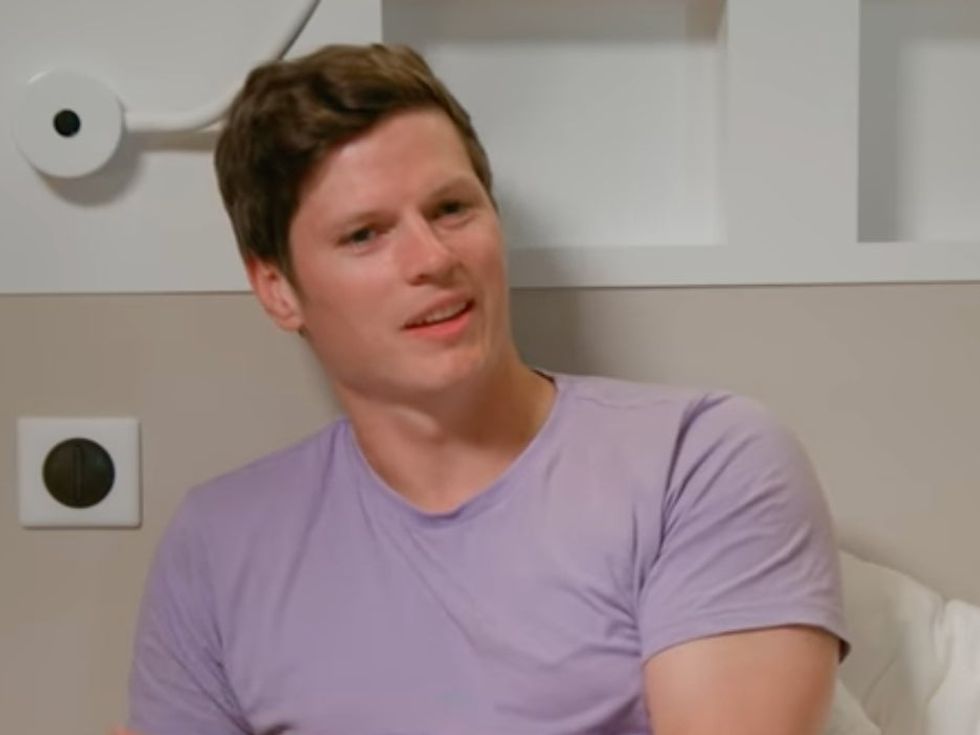
Simon Jones was initially reluctant to speak to Eammon about his fight to overcome mental health issues but, in the end, it proved a cathartic experience and a reminder of how far he’d come. Finding the Steelers after moving to London from Birmingham in his 20s equipped him with a support network and a safety net which, in turn, gave him a renewed sense of self-worth that he could transfer to other areas of his life. His story shows what happens when a person reaches their darkest point then finds the strength to bring themselves back from the brink. He tells Eammon in the film: “I never had depression before but I was at the lowest of the low. And just when I was about to walk away from rugby something told me that rugby can still help you. So this club, and this season probably saved my life.”
What’s so special about rugby?
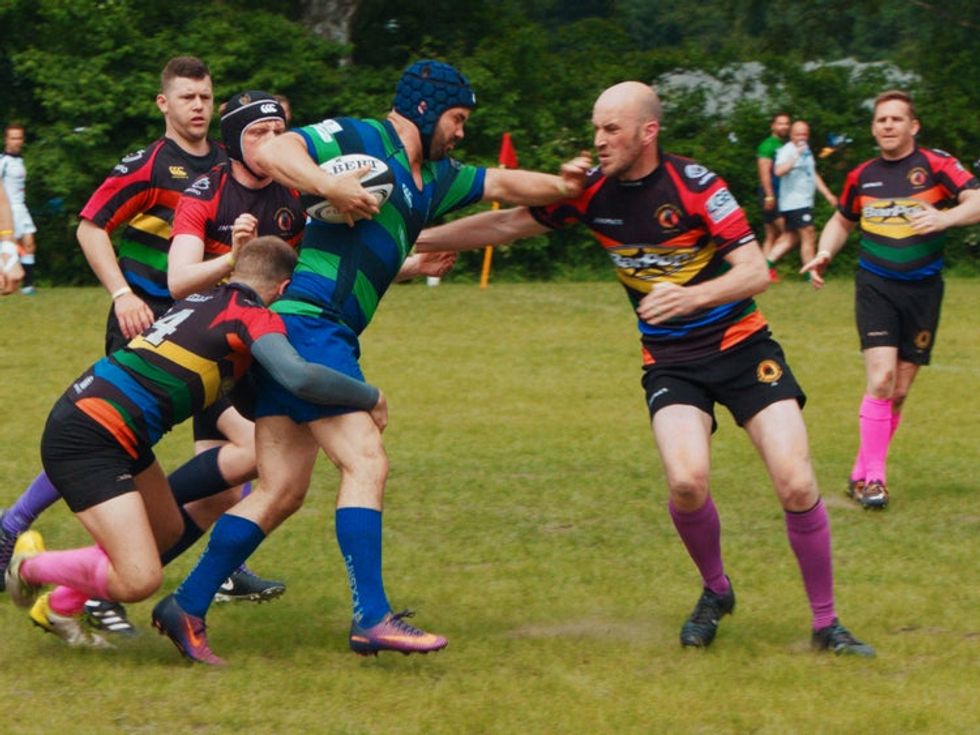
This could have been a film about any gay sports club, about any tight-knit community, but those involved agree that there’s something particularly striking about its focus on rugby.
“It’s such a masculine sport, it’s brutal, you’re slamming each other onto the ground, you’re throwing your body on the line,” Eammon said.
“And I think what makes the sport so special and why it’s been so successful is we’re going out onto the field and it’s like we’re going into battle with our mates. The camaraderie you build doing that is like nothing else you can ever do.
“Queer people are so used to putting their emotional selves on the line but here they’re actually putting their physical selves – their bodies – on the line. And for those that were excluded or self-excluded from the sporting pitch, to be able to reclaim that later in adult life has been very special.”
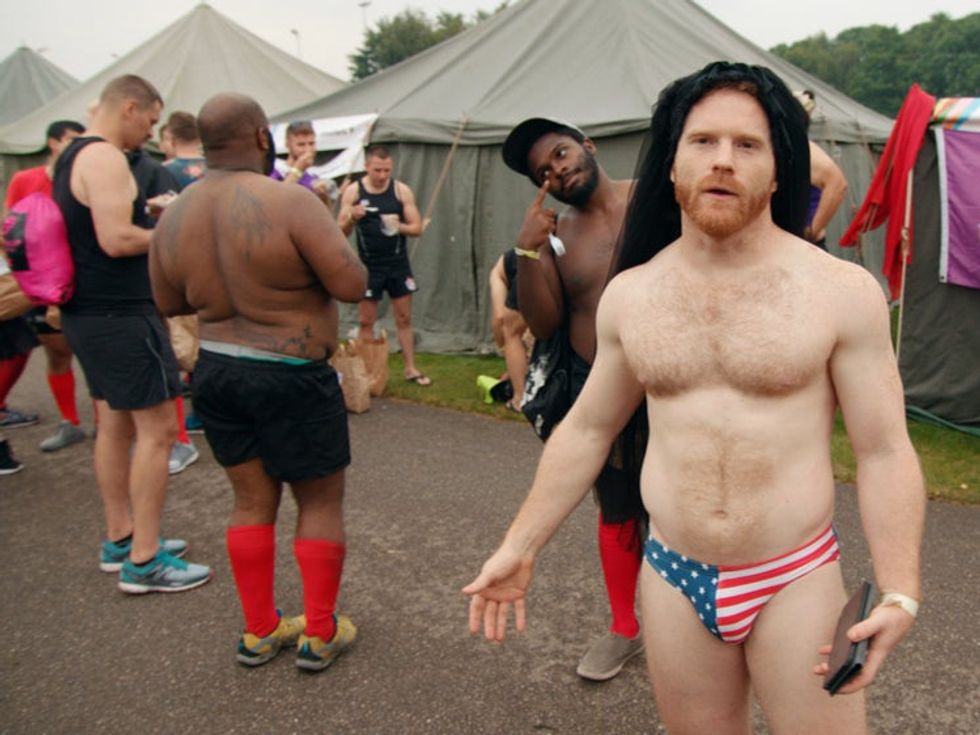
Meanwhile, Simon had a slightly different take.
He told Indy100: “Rugby has always been inclusive in many aspects. Things like body type doesn’t matter – you can be really tall, really short, any body shape and there’s a place for you – so I’d always hoped it would be a really welcoming sport to everyone.
“But there’s something about these sort of macho environments that frightens a lot of people, and so they avoid them.”
However, the Kings Cross Steelers – and the hundreds of gay teams that have emerged since the club’s formation – have proven that there’s an alternative. A male sport’s team can shed the bib of toxic masculinity and be just as fierce, just as ballsy, just as successful.
Simon continued: “I think the film really demonstrates the beginning of something which will be a massive change in the next 10-15 years, where team sports have the opportunity to prove themselves as really welcoming of all sexualities.
“And I think, with that, they’ll see more really talented individuals coming through and, hopefully, being very successful.”
Why has the film struck such a chord with people?
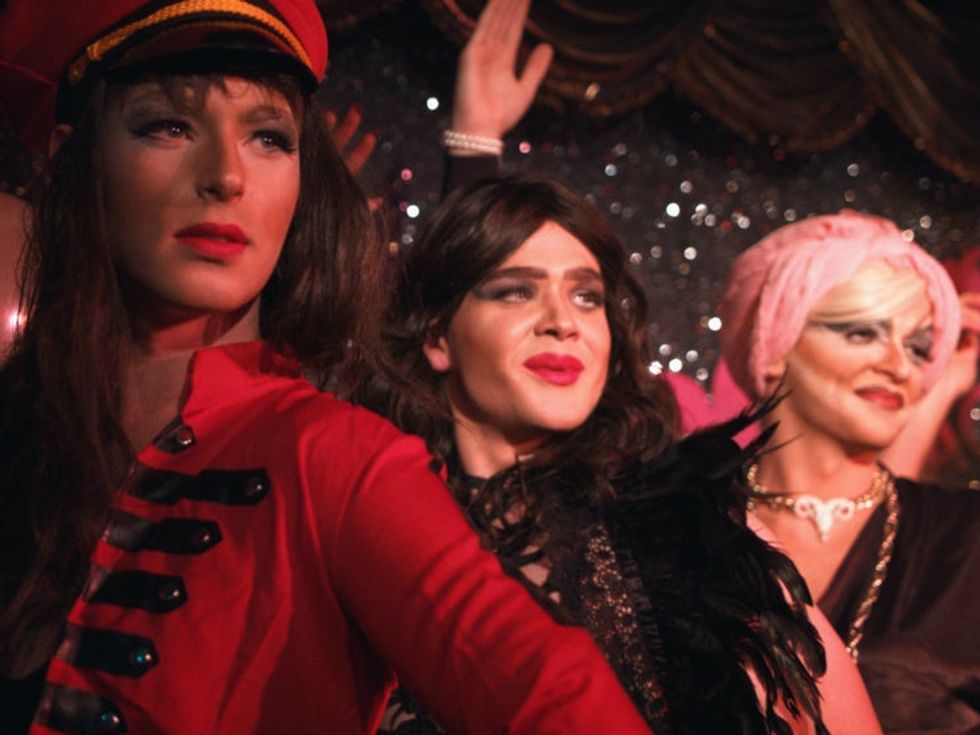
Steelers has screened at a number of prestigious film festivals, including BFI Flare London, the Boston Globe’s GlobeDocs, and the New Zealand International film festival, to great critical acclaim.
Yet, both Simon and Eammon agree that hearing people’s individual and personal responses has touched them more profoundly than any glowing review.
“My big hope was that it would be well received outside of our community,” Simon said. “And actually, a lot of people who’ve seen it have then spoken to me about challenges of their own, and which are factually completely unrelated to the ones we describe, but there’s so much overlap.
“And so what I’m hearing from people is that they connected with seeing human beings struggle with life, and helping each other to get through. I guess it’s a film that touches a lot of difficult subjects but actually the thread running through is positivity.
“So hopefully what people are taking away is that challenges come and go but you can overcome them. And so whether it’s a rugby club or another kind of community, there are always support networks that can help you get through your own difficulties.”
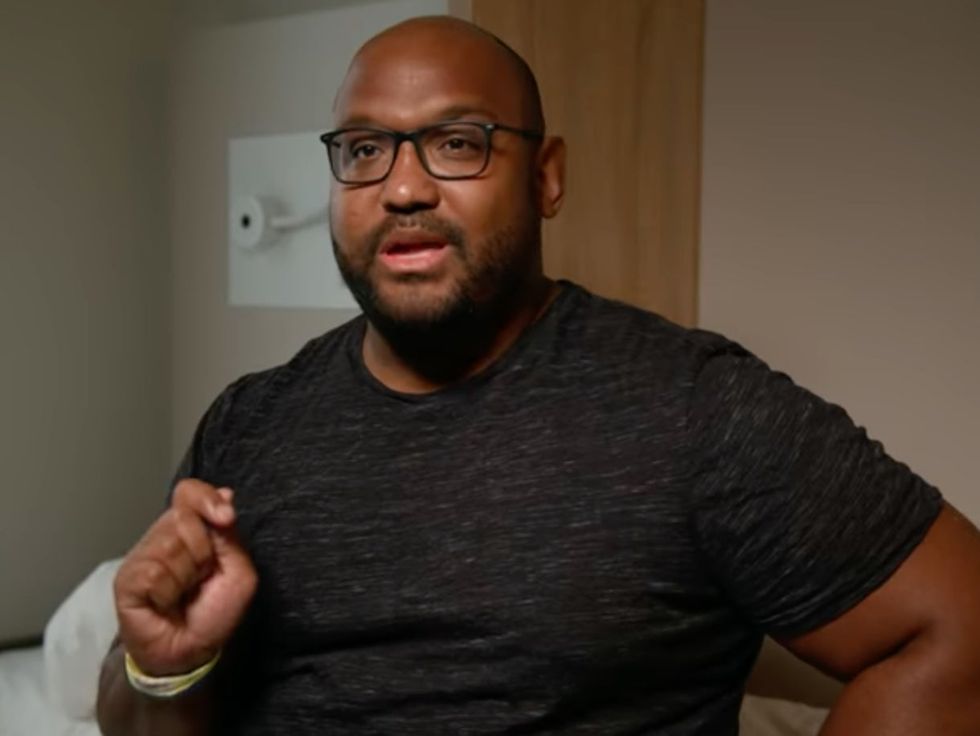
Speaking about the creative process, Eammon said he believed that his shoestring budget and lack of forward-planning contributed to the poignant authenticity of the film.
“One thing I learned as a filmmaker is the power of simplicity,” he said. “It was just me with the camera in the room interviewing Nic, Simon and Drew.
“And I think that if we’d had a producer with a clipboard, a soundman with a boom-mic and a guy checking the lighting, it would have taken them out of it.”
Hailing his three subjects, he said: “People can see that they were so genuine and honest with their stories, and who can’t relate to that?”
He added that he hoped the film would open more people’s eyes to the realities of living as a queer man.
“For people who haven’t had a lot of exposure to the queer community, or who don’t have lot of gay friends, maybe this might be pulling the veil back to really show, hey, actually, we’re exactly the same. We have the same hopes and ambitions, we face the same struggles, we have that same voice in our heads that tells us we can’t do something. And to see people deal with those kinds of things, overcome them and find happiness, is something that can give anybody hope.”
What’s next for the Steelers?
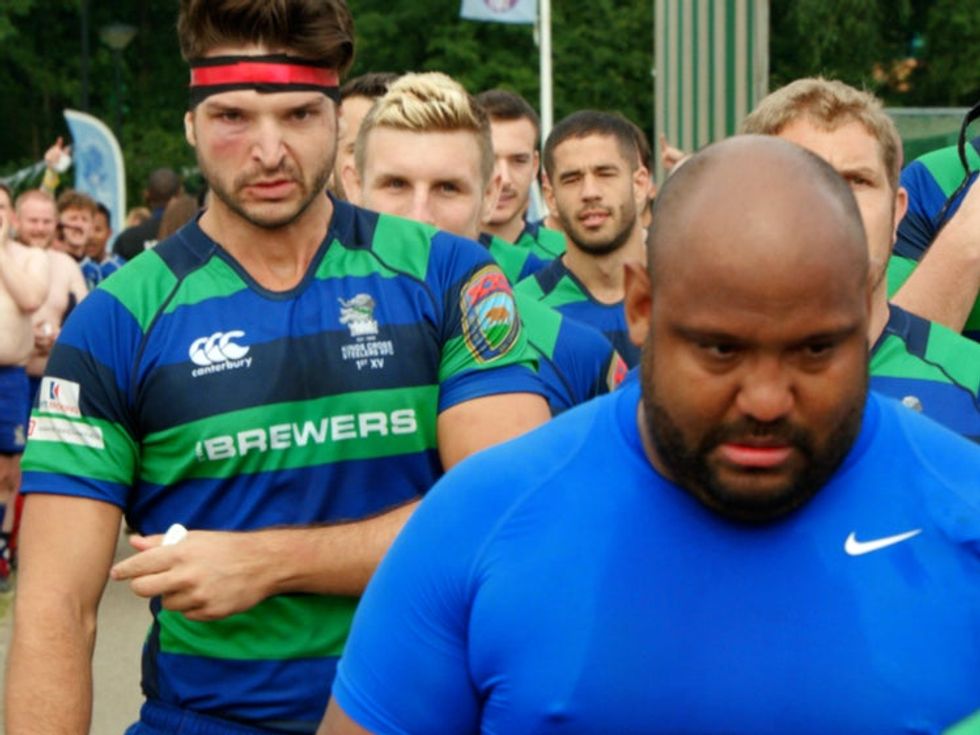
Last year, the club celebrated its 25th birthday and, despite suffering the effects of three lockdowns it’s still going strong.
The Steelers now have more than 300 members of over 20 nationalities, yet the club still has some way to go before its mission is fully realised.
Chair Matt Webb told Indy100: “We have gay, bi, trans, non-binary and straight members, but can’t call ourselves gay and inclusive unless we welcome absolutely everyone.”
Therefore, they have just announced a partnership with women’s club the East London Vixens.
“As we look to the future, we want to ensure that anyone who wants to play rugby feels welcome,” he said.
“We want to be a model to other teams – both mainstream and within International Gay Rugby (IGR) – because we believe that the more inclusive you make the sport, the more talent you’ll see emerge.
“In essence, we want to build a club for everybody,” he added.
“And hopefully one day we’ll see an LGBTQ+ captain of England.”
